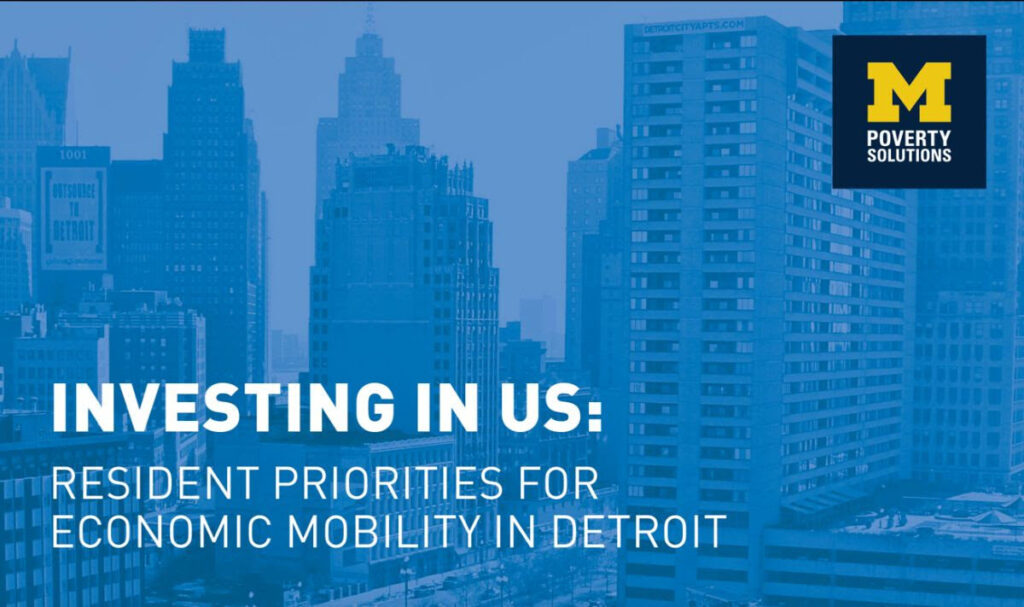Economic mobility projects led by Church of Messiah Housing Corp., Journey to Healing, Urban Neighborhood Initiatives, and Wayne Metropolitan Community Action Agency will receive technical assistance and $10,000 grants from Poverty Solutions at U-M.
-
January 27, 2022
How can communities best bridge the digital divide?
Over the next three years, the team will focus their research on resource-constrained communities in Detroit’s Eastside neighborhood and a refugee resettlement agency that serves a public housing community in Ypsilanti, Michigan.
-
January 24, 2022
Undergrads: Here’s your chance to conduct research in Detroit in 2022
Students receive $2,500-3,500 stipend award, depending on financial need, and are provided housing at Wayne State University. Program related transportation costs are also covered by the DCERP.
-
January 24, 2022
Q&A: Mary Janevic on improving the health of older adults in Detroit
“Detroit in particular has been hard-hit by the pandemic, with a COVID-19 death rate more than three times Michigan’s overall rate.”
~ Mary Janevic, associate research scientist, School of Public Health
-
January 24, 2022
What lies beneath: Detroit River narratives emerge through schooner trips, boat building
The Detroit River is saturated with stories. Designated as a Heritage River by both the U.S. and Canadian governments, the river and its wetlands were once vital habitat for fish and wildlife hunted by the People of the Three Fires and immortalized by their legends.
-
January 10, 2022
Dara Hill finds resonating way to share research
“I will tell you this: When I published articles about this topic, no one was like, ‘I want to read it! How can I read it? With the film, I had so many people who couldn’t make it to the festival writing me, saying, ‘I want to see it! How can I see it?’”
~ Dara Hill, associate professor of reading and language arts in the College of Education, Health, and Human Services at UM-Dearborn
-
January 10, 2022
Detroit-area speaker encourages churches to be more welcoming
John Thorne said systemic and institutional racism can permeate the hallowed halls of the church, and it is up to congregations and pastors to ensure their place of worship is inviting.
-
December 20, 2021
Alum Noam Kimelman shares the secret to building true community
These friendships and real experiences are what finally taught Kimelman his most important life lesson to date: that his views on what Detroit needed were not necessarily what the people who lived there every day needed — from him or the organization he built.
-
December 16, 2021
Census undercounted population in select Detroit neighborhoods by 8%
If undercounts of a similar magnitude occurred in a majority of the city’s more than 600 block groups, the potential undercount could be in the tens of thousands.


